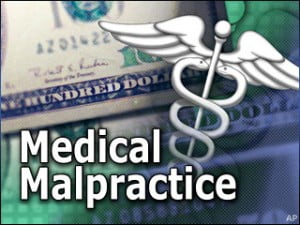What You Need to Know if You Filed a Medical Malpractice Lawsuit Before Filing Bankruptcy
Oftentimes a debtor who has been inundated with medical debt also may have filed a medical malpractice lawsuit before filing bankruptcy.
If that is the case, there a few things that the bankruptcy debtor should know:
- Any debtor who is filing Chapter 7 bankruptcy or Chapter 13 bankruptcy is required to disclose they have a medical malpractice lawsuit pending. Failure to disclose a medical malpractice lawsuit during your bankruptcy case could result in a bankruptcy dismissal or other penalties.
- The bankruptcy trustee may have the right to pursue the medical malpractice lawsuit in the debtor’s name. When the debtor files bankruptcy, the bankruptcy court has an interest in the medical malpractice lawsuit because any settlement or judgment in the debtor’s favor is an asset of the bankruptcy estate.
- Even if the bankruptcy trustee does not pursue the medical malpractice lawsuit in your name, he/she may want to work with your medical malpractice attorney to make sure that the settlement or judgment is to the benefit of the bankruptcy estate. Remember, any money won that from the medical malpractice lawsuit that is not covered by exemptions will be used to repay creditors. It is in the interest of the bankruptcy trustee to maximize any recovery from the medical malpractice lawsuit.
- Your medical malpractice lawsuit settlement, if won, may have more value than the debts in your bankruptcy case. But even if the lawsuit is not worth more than your debts, you may still be able to use exemptions to keep more of the settlement for yourself during bankruptcy. Bankruptcy exemptions can be used to your advantage with the help of an experienced bankruptcy attorney.
Any More Questions About Bankruptcy and Medical Malpractice Lawsuits?
If you have any questions regarding medical malpractice and bankruptcy submit your questions here or set up a free consultation.
